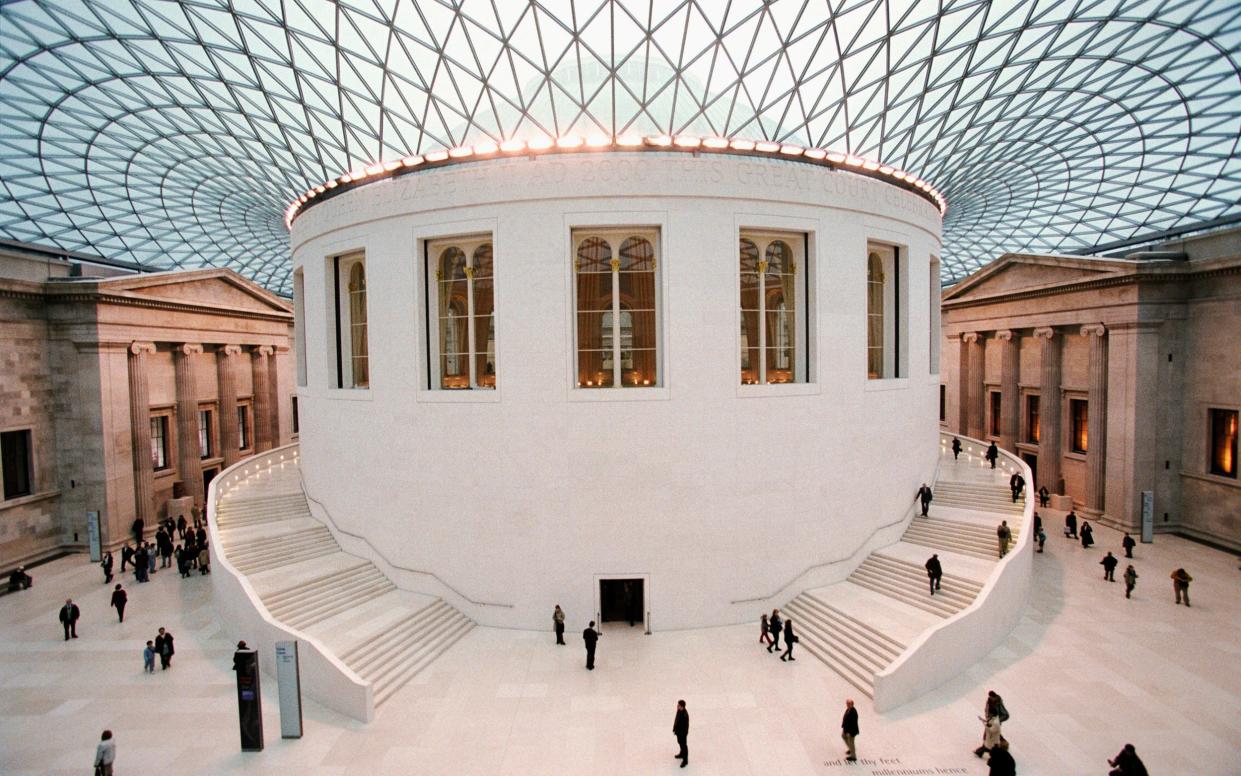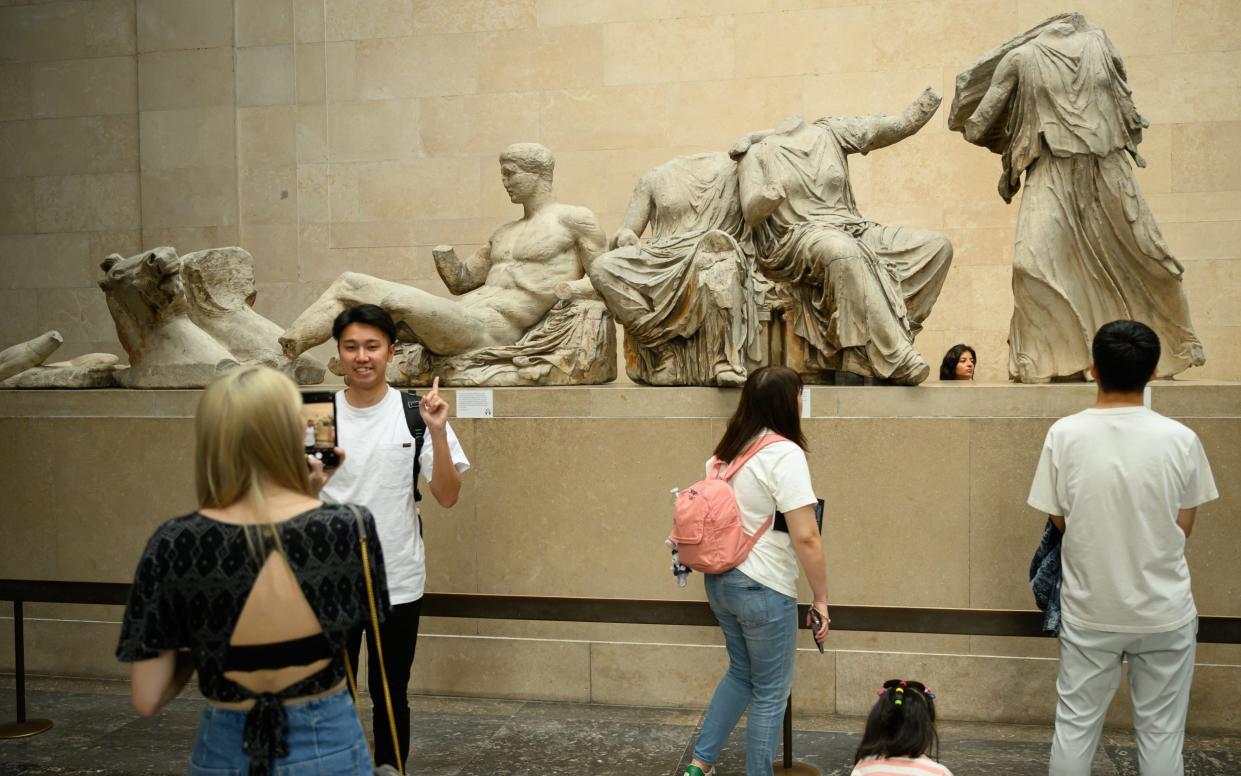British Museum in private talks with unnamed governments over returning artefacts

The British Museum is holding private talks with four foreign governments about the return of items in its collection, the Telegraph can reveal.
A document seen by The Telegraph shows that since 2015, the museum has received 12 separate formal requests for it to give back items it currently owns.
Of these, four were made by foreign governments through “confidential diplomatic channels” rather than through published letters or media appeals.
The museum said that it could not reveal which four objects had been discussed – or with whom – as communications with the states in question were “ongoing”.
The British Museum is prevented by law from permanently returning any object in its collection, except in extremely limited circumstances.
Loan agreements
Its trustees have in recent years agreed for items to go back to their countries of origin on the basis of “long-term loans”.
Such an agreement was reached earlier this year with the Manhyia Palace Museum in Ghana, over a collection of gold pieces that have been called the country’s “crown jewels”.
Ghana’s government requested the return of the regalia, originally the property of the Asante king, in 1974, and was told months later by the museum that it would be “legally impossible” to do so.
The Telegraph revealed last year that George Osborne, chairman of the museum’s board of trustees, had negotiated a deal with Greek officials to loan the Elgin Marbles back to the country.
The proposed deal would see some objects moved from London to Athens on a long-term basis as part of a “cultural exchange”, with the museum receiving new Greek treasures in return.
The first formal request that the marbles be returned was made in 1983. The Greek government received a rejection from the British Museum in 1984.

When asked by The Telegraph, the museum would not confirm that it had flat-out rejected any of the 12 formal requests it had received in the past decade.
The museum did confirm that the Rosetta stone, a significant artefact that was taken from Egypt to Britain in 1802, was not one of the four items privately requested for return.
It had been speculated that the stone could be returned after the museum dropped the “Rosetta Project” name from its £1 billion renovation plan last summer.
In August, a Chinese newspaper demanded that the museum give back all Chinese relics, after it emerged that a curator had been responsible for a spate of thefts from other parts of its collection.
The British Museum confirmed that it has not yet received any formal return requests from the Chinese government. At least two other governments have made private repatriation requests in the last financial year.
Trustees in control
Requests for the repatriation of objects are received and handled by the museum’s trustees, who are legally responsible for its collection.
They must sign off on all loan agreements, even if they are arranged by the director of the museum himself.
Items that have been formally requested for return since 2015 include 133 sculptures from Amaravati in India, a Moai statue from Easter Island, and an unspecified number of antiquities from Nigeria known as the Benin Bronzes.
These items can be named as the governments requesting them have chosen to do so publicly, rather than through private communications to the British Government.
They are listed on a section of the British Museum website called “contested objects”, along with the gold relics recently loaned back to Ghana.
Nowhere on this site does the museum acknowledge that it has received formal repatriation requests that are not disclosed to the public.

In a document seen by The Telegraph, released after a freedom of information request, the museum recognised that there is a “public interest” argument for it to disclose which items it has privately been asked to repatriate.
This was “because of the current public debate about the origins of some historic collections and the question of whether certain objects should be returned to their place of origin”, it said.
The museum decided against this however as to do so “would have a detrimental effect on its relationship with the states in question at a time when communications are ongoing”.
Exceptions to the rule
The museum is able to permanently give back objects in strictly limited circumstances – such as if they contain human remains or were looted by the Nazis during the Second World War.
In 2006, the museum’s trustees agreed to return two human ash bundles in its collection to Australia, following a request from the Tasmanian Aboriginal Centre.
Loans have been arranged for diplomatic reasons in the past as well as to address demands for repatriation.
The museum loaned a 2,600-year-old artefact known as the Cyrus Cylinder to Iran in 2010.
It also lent a sculpture from the Elgin Marbles to the Hermitage in St Petersburg in 2014.
It is understood that conversations between the museum’s trustees and foreign officials are not taking place with the specific end-goal of repatriation.
Mr Osborne did not comment when approached by The Telegraph.
A British Museum spokesman said: “The museum understands and recognises the significance of the issues surrounding the return of objects.
“We have always been open about the fact of these requests, and we continue to engage in positive dialogue with communities, colleagues, and museums across the globe to share the collection as widely as possible, within the bounds of the law.”


